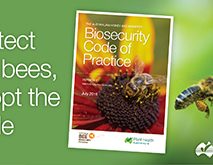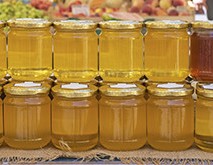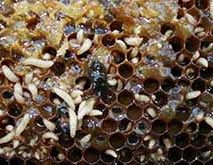01/08/2018 – 2:40 pm
Beekeepers nationally, commercial and hobby, are being urged to adopt the Australian Honey Bee Industry Biosecurity Code of Practice to keep their bees healthy and to safeguard honey bee and pollination dependent industries. Honey production is worth more than $100 million annually, along with sales of beeswax, queen and packaged bees. This is dwarfed by […]
Read more





